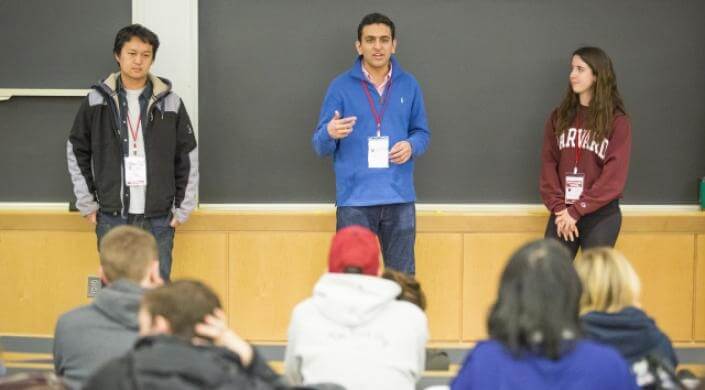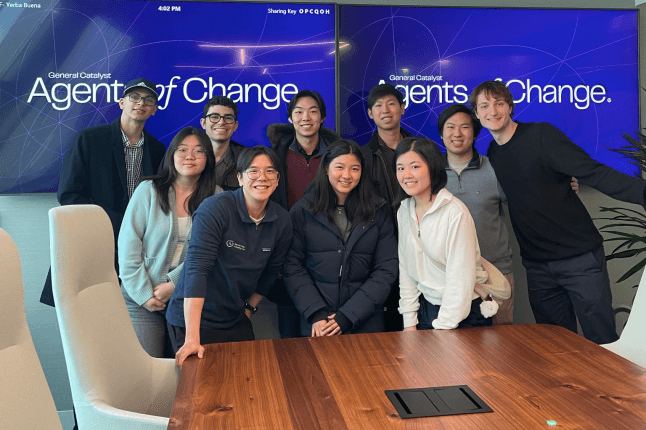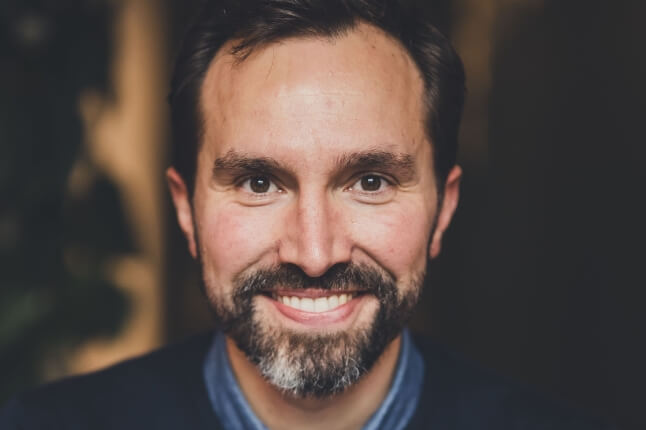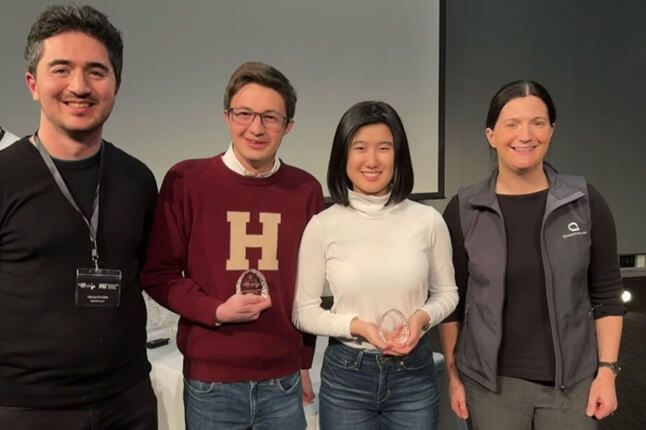News
Computer science concentrator Curren Iyer (center) shares insights into SEAS courses and programs during a campus tour. (Photo by Eliza Grinnell/SEAS Communications.)
Class is always in session for this computer science concentrator, whether he is teaching English to elementary school students in India, mentoring entrepreneurs, or fine-tuning a CS curriculum for middle school students.
Why did you decide to concentrate in computer science?
When I came to Harvard, my interest was in the classics, Latin and Greek, so I really wasn’t thinking about computer science. I shopped around, took some computer science classes, and Introduction to Computer Science I (CS 50) and Introduction to Computer Science II (CS 51) really resonated with me. I enjoyed learning about the things you can do with computer science. Chemistry and physics are constrained by the laws of nature—gravity is gravity, for instance—but with computer science, the only real limitation is the human knowledge that has come before you.
Tell us about one of your favorite academic experiences
I’m very proud of our final project in CS 50, which was an app called Clock Rise. It was a weather-based alarm clock. When it was snowing outside, the alarm clock would play “Let It Snow.” When it was raining, you’d hear Rihanna’s “Umbrella.” That was a fun project and it gave me the opportunity to see how we could apply our knowledge to make a tangible product.
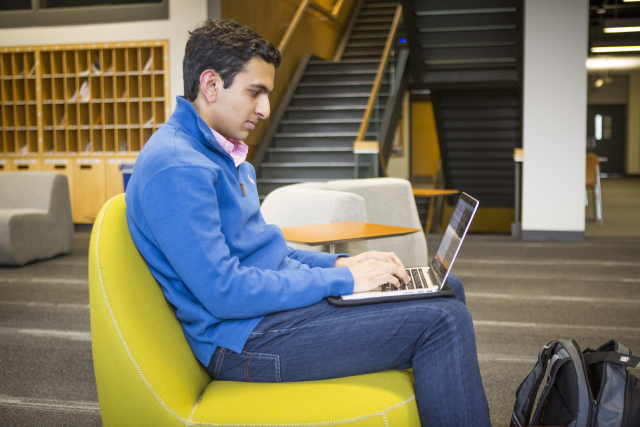
Iyer enjoys the endless possibilities afforded by the field of computer science. (Photo by Eliza Grinnell/SEAS Communications).
You are currently president of Harvard Ventures. What is the role of that organization?
Harvard Ventures is a student entrepreneurship group on campus. Students look at Bill Gates and Mark Zuckerberg and think, “maybe I could do that.” We try to get them involved in not just thinking or daydreaming, but actually trying their hands at entrepreneurship. We host tech talks and panels so students can learn about what entrepreneurship is. Our fellowship program pairs teams of students with startups and venture capital firms in the Boston area, so they can actually get hands-on experience. Harvard Ventures also offers an accelerator/mentorship program called VentureWorks. In that program, six student teams come together for a year to work on projects and interact with entrepreneurial mentors.
Beyond Harvard Ventures, you also run the local office of venture capital firm Contrary Capital. Tell us about that.
Contrary Capital is a college-focused venture capital firm. Our goal is to tap into the undergrad potential for starting companies. A lot of students at SEAS work on startups, and they have a lot of potential for launching their ideas. In college, you have a safety net that enables you to actually see these ideas through. When you are working full time, you might not think the risks are worth it. We look for those cool startup ideas and figure out how we can help them.
In addition to your interest in entrepreneurship, teaching has also been one of your passions. How did you get involved in teaching?
The opportunity to teach has definitely been one of my most enjoyable experiences outside of school. I took an interest in teaching when I was in high school. I visited my grandfather in India for a few weeks and got a job teaching math and English at a local school. For me, learning what it is like to be a school kid in India was an invaluable experience.
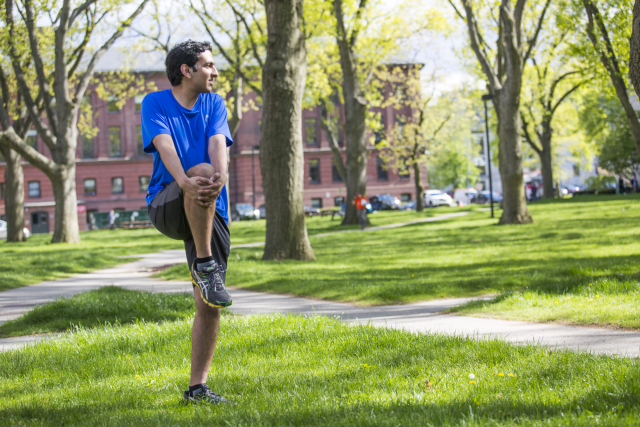
When he's not studying, teaching, or working on an entrepreneurial project, Iyer can often be found outside running throughout the Harvard campus. (Photo by Eliza Grinnell/SEAS Communications.)
How have you continued teaching at Harvard?
Through SEAS, I had the opportunity to participate in the Harvard Summit for Young Leaders in China. That was a large conference that brings together young people from throughout China for a sort of “freshman seminar” on a number of different topics. I taught a product design and entrepreneurship seminar, using a Harvard Business School case study I had learned in class. It was a cool experience to be able to work with people from a different culture.
I’ve also been active as a teacher in the Digital Literacy Project. In that program, we teach a basic computer science curriculum to middle school students. A lot of public schools in underrepresented areas don’t have access to these resources, so being able to spread awareness of computer science is really important.
How does your experience as a teaching spill over into your volunteer work with the Model United Nations?
For the past two years, I’ve been involved in putting together an awesome conference that brings together hundreds of people from around the world who are interested in international relations and foreign policy dialogue. Working with the Model United Nations is rewarding because, if these students can continue that interest, they can have further impact, whether they go into office, pursue foreign policy careers, or enter the business world. I’m grateful to be able to play a role in sparking their interest.
Name: Curren Iyer
Class: 2017
Hometown: Riverside, Conn.
Concentration: Computer Science
Hobbies: Running, soccer, technology
Fun fact: Iyer can read Latin and Greek.
Curren Iyer, A.B. '17
Curren Iyer, A.B. '17, discusses his love of computer science and how the opportunity to teach at Harvard has been a transformative and inspirational experience.
Topics: Computer Science
Cutting-edge science delivered direct to your inbox.
Join the Harvard SEAS mailing list.
Press Contact
Adam Zewe | 617-496-5878 | azewe@seas.harvard.edu
